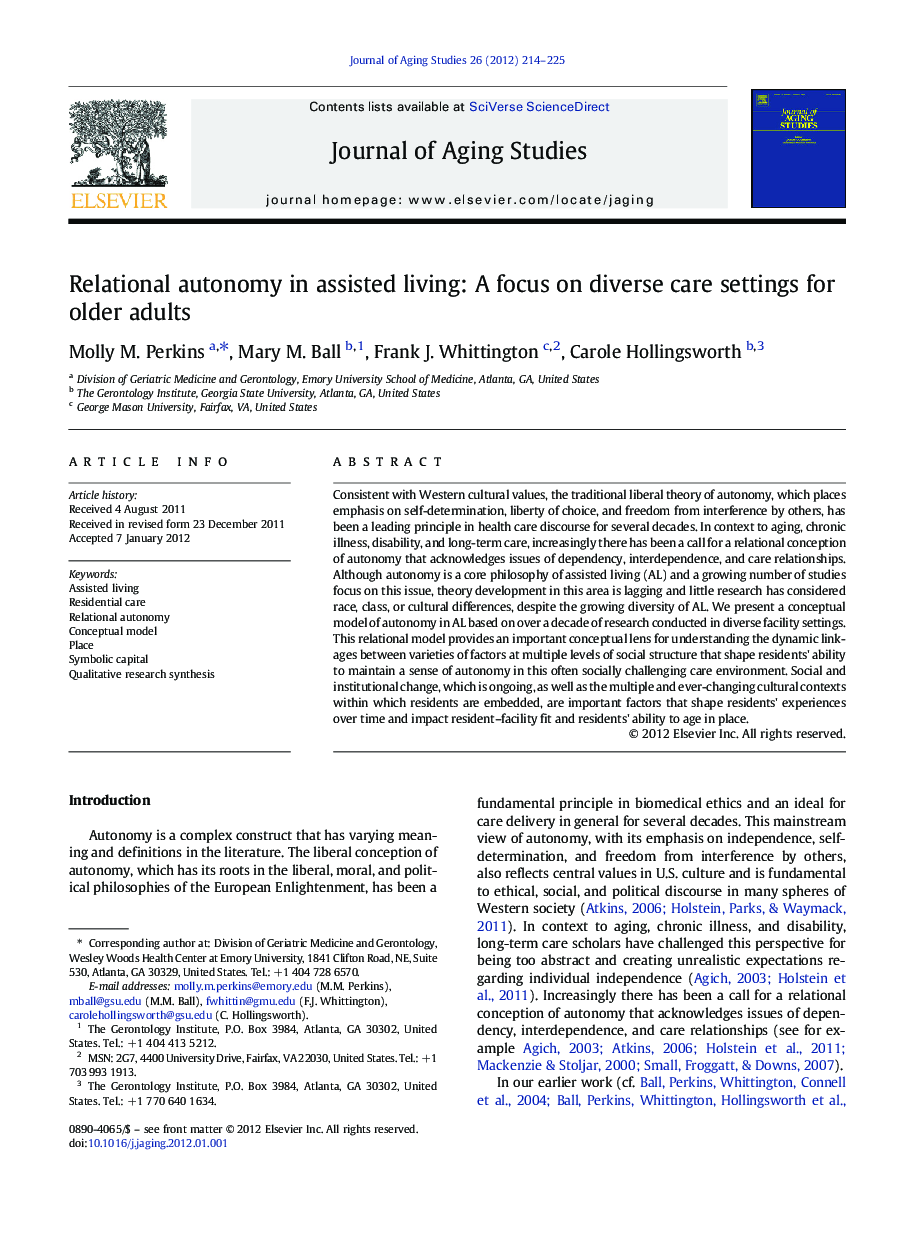| Article ID | Journal | Published Year | Pages | File Type |
|---|---|---|---|---|
| 1081977 | Journal of Aging Studies | 2012 | 12 Pages |
Consistent with Western cultural values, the traditional liberal theory of autonomy, which places emphasis on self-determination, liberty of choice, and freedom from interference by others, has been a leading principle in health care discourse for several decades. In context to aging, chronic illness, disability, and long-term care, increasingly there has been a call for a relational conception of autonomy that acknowledges issues of dependency, interdependence, and care relationships. Although autonomy is a core philosophy of assisted living (AL) and a growing number of studies focus on this issue, theory development in this area is lagging and little research has considered race, class, or cultural differences, despite the growing diversity of AL. We present a conceptual model of autonomy in AL based on over a decade of research conducted in diverse facility settings. This relational model provides an important conceptual lens for understanding the dynamic linkages between varieties of factors at multiple levels of social structure that shape residents' ability to maintain a sense of autonomy in this often socially challenging care environment. Social and institutional change, which is ongoing, as well as the multiple and ever-changing cultural contexts within which residents are embedded, are important factors that shape residents' experiences over time and impact resident–facility fit and residents' ability to age in place.
► In context to aging and long-term care, we contribute to a relational view of autonomy. ► Our relational model of autonomy informs policy, practice, and research. ► Our grounded theory applies to a diverse range of care settings for older adults. ► We use qualitative synthesis, an innovative, but underused analytical technique.
